Unsurprisingly, the idea of property tax is rapidly gaining importance as a source of the most needed revenue within all municipal bodies across India.
Property tax is one of the most important sources of revenue through which the state of Assam enhances and develops existing civic amenities.
This particular blog will give our readers comprehensive information about the Assam property tax system in including its background, outline, calculation of tax, process of online payment, specific exemptions, and other related features.
- What is the Introduction to Assam Property Tax?
- What is the Historical Background of Assam Property Tax?
- What is the Legal Framework of Governing Authorities?
- What is the Importance of Assam Property Tax?
- What Types of Properties are Taxed?
- What is the Method of Property Tax Calculation?
- What is the Assam Property Tax Payment?
- What are the Penalties for Non-Payment of Property Tax?
- What are the Exemptions and Rebates on Assam Property Tax?
- What are the Challenges in Assam’s Property Tax System?
- What are the Tax Rates and Slabs of Assam Property Tax?
- What are the Reforms in Assam’s Property Tax System?
- What are the Property Tax Jurisdiction and Responsibilities?
- What is the Property Tax Assessment Tax Process?
- What is the GIS-Based Property Taxation?
- What are the Issues with Property Tax Collection in Assam?
- What are the Solutions to Improve Property Tax Collection?
- What is the Situation of Property Tax in Rural Areas?
- What is the Impact of Property Tax on Urban Development in Assam?
- What is the Future of Assam Property Tax?
- In Conclusion
- FAQs
- Q1. What documents are required for property tax payment in Assam?
- Q2. Can I appeal if I believe my property tax assessment is incorrect?
- Q3. Are there any tax benefits for constructing energy-efficient buildings in Assam?
- Q4. How often is property tax paid in Assam?
- Q5. What happens if I fail to pay my property tax on time?
- Q6. How is property tax used by the local government in Assam?
- Q7. Is there a difference in tax rates for owner-occupied versus rented properties?
- Q8. How can I check my property tax balance online?
- Q9. Are there any exemptions for properties used by religious institutions in Assam?
- Q10. Is property tax applicable to agricultural land in Assam?
What is the Introduction to Assam Property Tax?
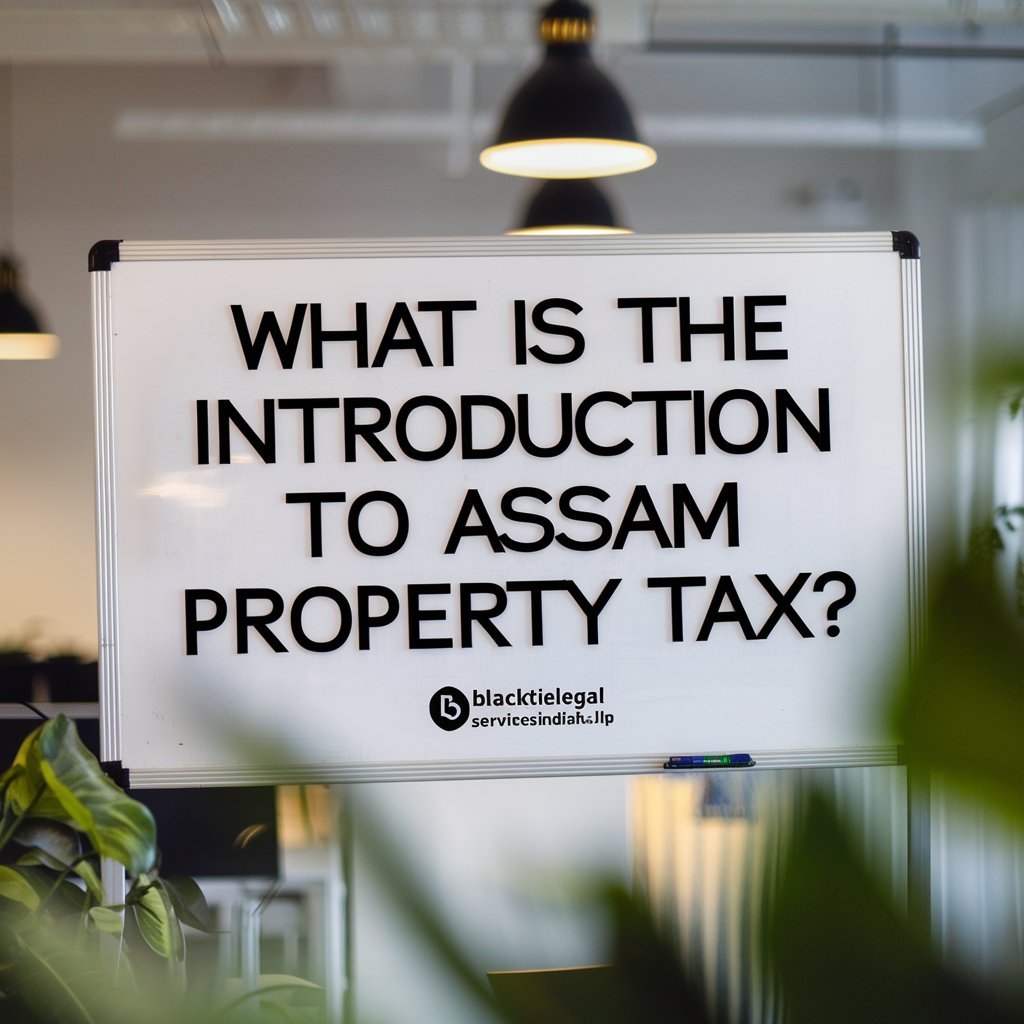
Property tax is an expense that is often levied on owners of real estate by municipal authorities. Tax revenue is spent on local public services, for example repairs of roads, waste disposal and city parks.
The primary responsible authority for collecting property tax in the state includes the Assam State Municipal Corporation or local municipal executive bodies such as municipal boards, town committees or panchayats.
What is the Historical Background of Assam Property Tax?
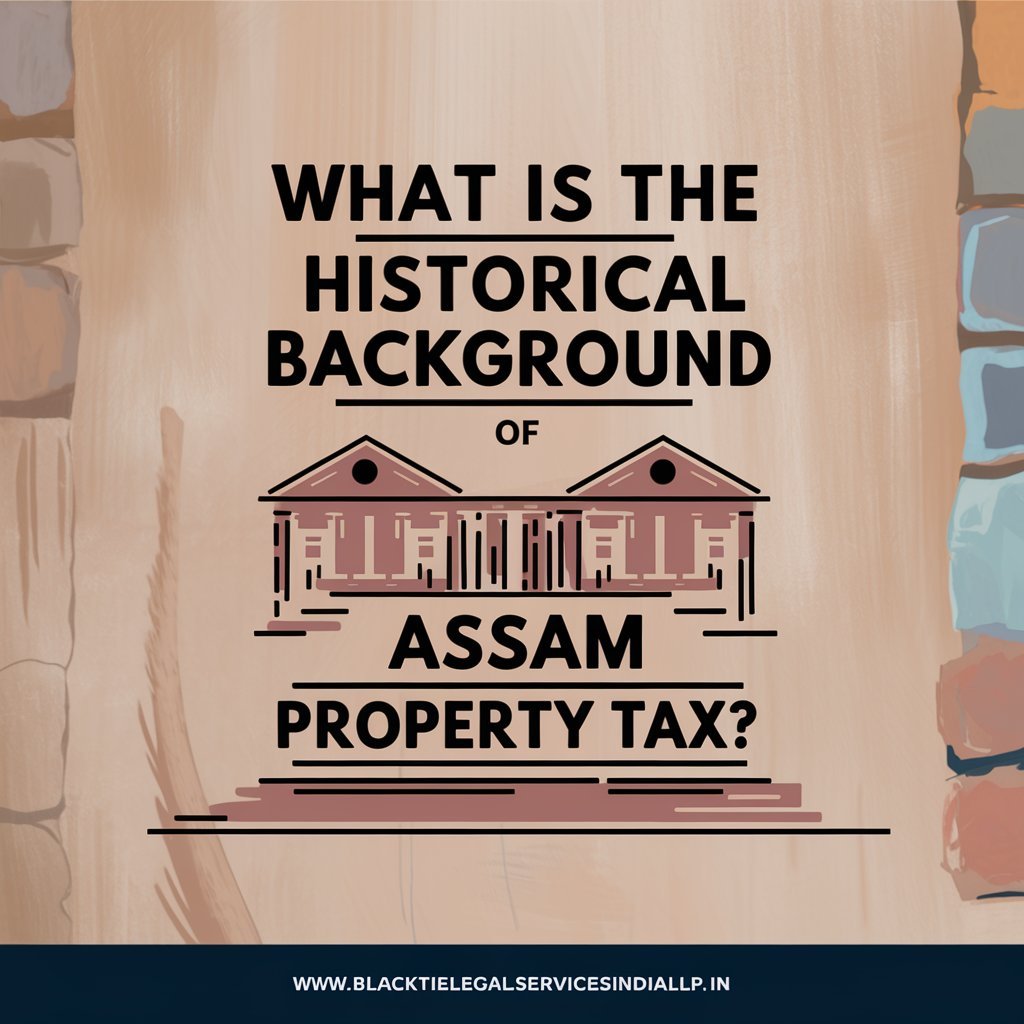
In Assam, a state in our country India, taxing property has been one of its most important sources of tax revenue for decades.
Initially implemented as a mechanism that would help governments obtain regular funds for the infrastructure development of growing cities, the property tax system in Assam changed over time.
The initial and foundation was created during the Assam Municipality Act, 1956, which gave local bodies the official power to levy, assess and collect property tax. In the past, this act has been reviewed from time to time to adjust certain provisions that respond to current urban issues.
This was followed by the Assam Urban Areas Rent Control Act, 1972, which regulated the rents prevailing in the property market and provided clear guidelines to municipalities regarding property for the purpose of assessment of taxes and also attempted to curb unfair practices in the property rental market.
They thus became relevant with the urbanisation of Assam, especially with the expansion of large cities like Guwahati, enabling the local administration to coordinate the system and manage civic infrastructure as well as physical planning.
What is the Legal Framework of Governing Authorities?

The Assam Property tax is mainly regulated through two major acts, namely the Assam Municipality Act, 1956 and the Assam Urban Area Rent Control Act, 1972. The largest and most populous city in the state is the Guwahati Municipal Corporation (GMC).
It also plays a vital role in property tax collection in the capital city. Other smaller cities and towns are under local Municipal Committees and Municipal Boards, which have the responsibility of administering taxes.
Key Governing Bodies:
- Guwahati Municipal Corporation (GMC)
- Assam Municipal Corporation (AMC)
- Town Committees and Municipal Boards
What is the Importance of Assam Property Tax?

Assam Property tax serves several important purposes:
- Civic Infrastructure Maintenance: As a major source of local revenue, property taxes provide funds for the construction and maintenance of roads, sewage systems, and public utilities.
- Public Amenities: It helps finance public parks, libraries, water and sewerage services.
- Urban Development Projects: This tax helps in the planning and development of cities and towns and ensures that their growth is sustainable in future.
- Health and Sanitation Services: These include local health clinics, waste collectors and treatment plants, funded by property taxes.
What Types of Properties are Taxed?
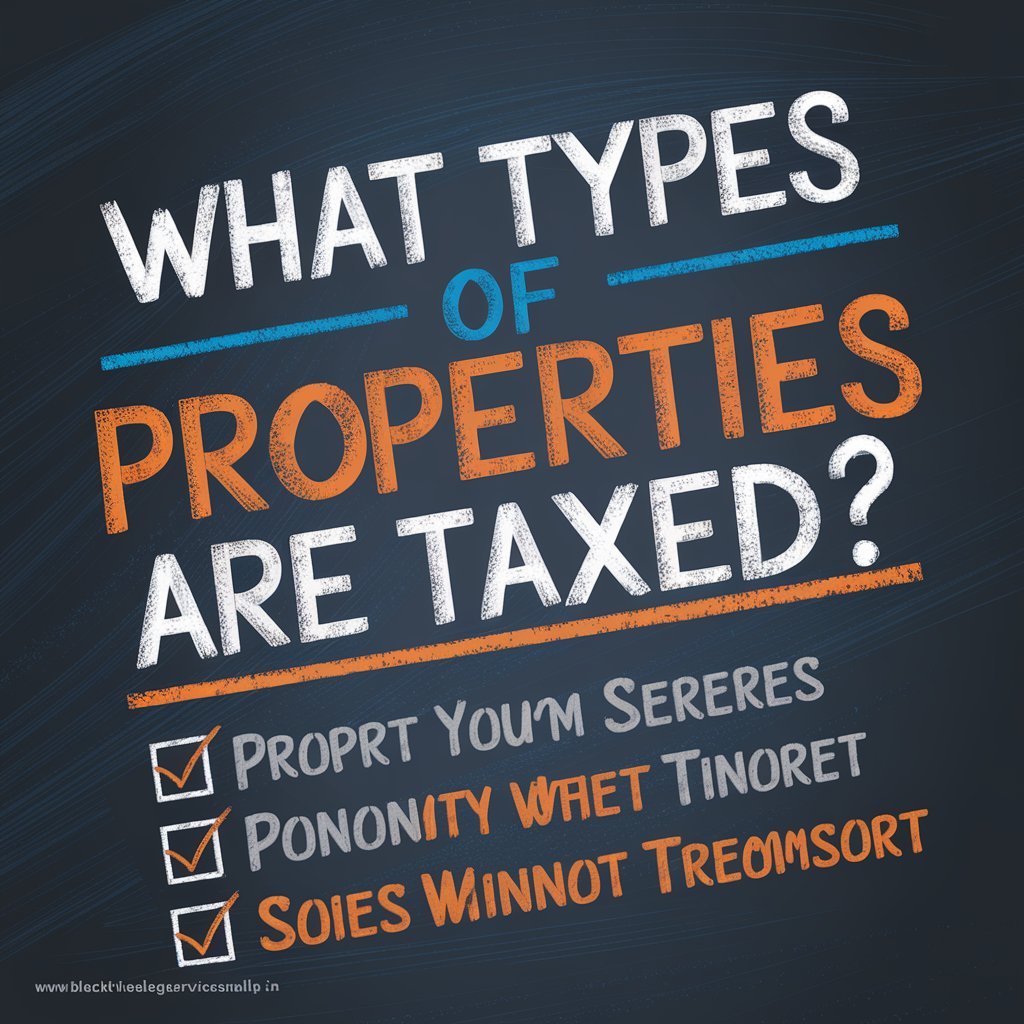
We have explained in detail the types of property taxation in India in the table given below:
| Type of Property | Description |
|---|---|
| Residential Properties | Tax is levied on self-occupied or rented residential buildings, apartments, and houses. |
| Commercial Properties | Includes shops, offices, and business complexes; taxed at a higher rate than residential properties. |
| Industrial Properties | Factories, warehouses, and industrial units fall under this category and are taxed accordingly. |
| Vacant Land | Land that is earmarked for development or other uses, which is subject to property tax. |
What is the Method of Property Tax Calculation?
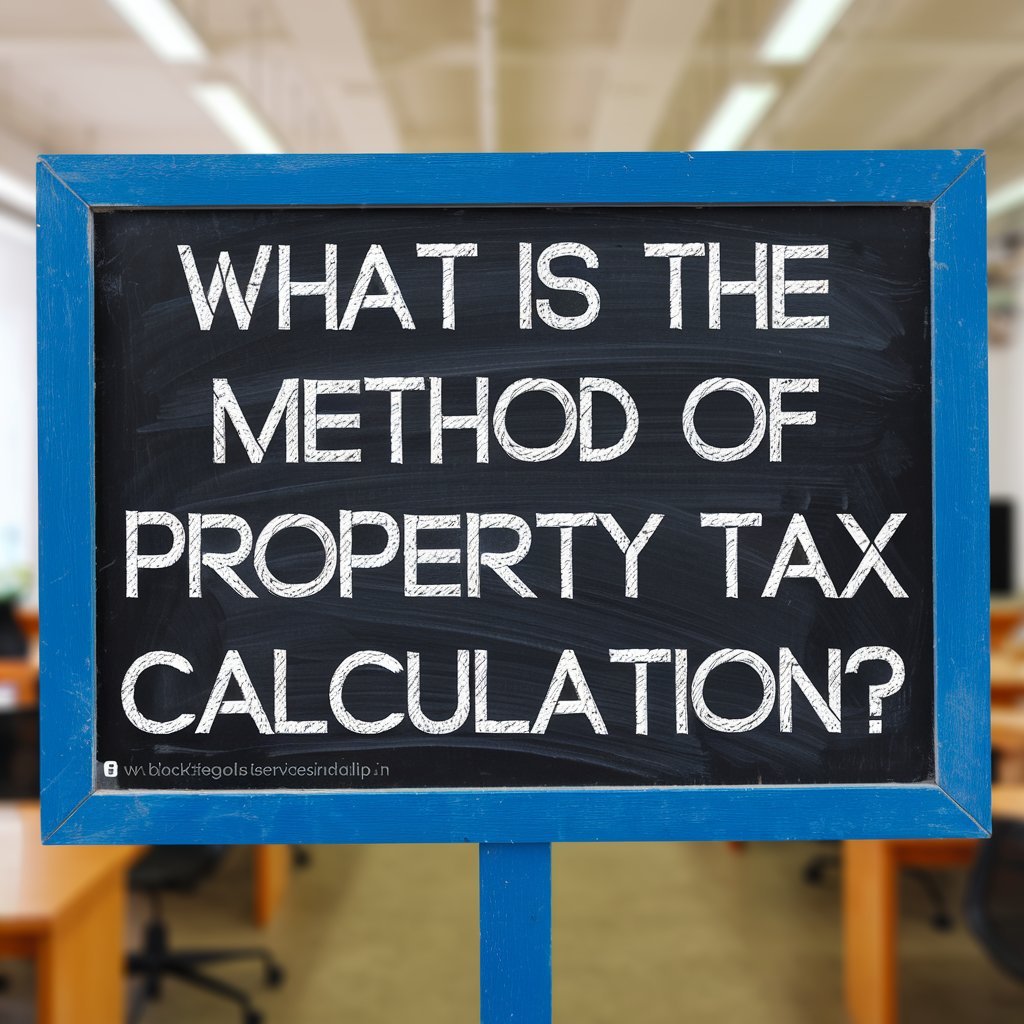
The calculation of Assam property tax is based on several factors, including the location, type, and size of the property. Here is a breakdown of the standard components used to calculate Assam property tax:
Annual Rental Value (ARV) System
One of the significant standard methods of calculating Assam property tax is the Annual Rental Value (ARV) system, under which tax is calculated based on the expected annual rent of the property. The rental value is also assessed assuming the property is not rented out, preferably at market rates.
Property Location
Properties in areas that are considered more developed (neighbouring markets, transportation, etc.) are subject to higher tax rates than properties in locations that are considered less developed or are in rural areas.
Property Size
The built-up area of the property as well as the total size of the land under the property also impacts the taxes that need to be paid. It is essential to understand that the larger the property, the higher the tax that needs to be paid.
Property Usage
The nature of the property being used within India (residential, commercial or industrial) significantly affects tax rates. Commercial and industrial properties, especially offices, are generally charged higher rates than residential properties.
Age of Property
The age of the property is another factor, which could take anywhere from a few years to many years, depending on the condition.
Property Ownership
Owners of houses, apartments or homes may be taxed differently than those who have rented out their premises, room, floor or office.
What is the Assam Property Tax Payment?

To avoid any complications of payment and to enhance the transparency most of the municipal corporations in Assam including Guwahati Municipal Corporation (GMC) has opened online payment gateways. This enables the property owners to make their taxes payments without having to visit the Tax Office.
Steps to Pay Property Tax Online:
- Go to the official website of the respective municipal authority ( like Guwahati).
- Select Assam Property Tax tab and click on the button labeled Pay Property Tax.
- Key in the UPIN or other particulars such as the names or addresses of the property owner.
- A few things to check include the details regarding the property and the remaining balance that is owed.
- Select the preferred mode of payment (Credit card,Debit card or via Net banking/UPI/etc.,) Now proceed with the payment.
- After coming up with the required payment, a receipt that is in the form of PDF is provided, and the user is free to download or even print it.
Advantages of Online Payment:
- Convenience: At least one does not feel like they have to spend hours in a queue at the tax collection office.
- Transparency: On-the-spot receipt generation makes the tax collection process very transparent.
- Timely Payment: The use of reminders and alerts ensures that no penalty is levied due to delayed payment.
Steps to Pay Property Tax Offline:
- Visit the Municipal Corporation Office: Visit the council office, municipal corporation or any other place specified as the Assam property tax collection agency nearest to you.
- Collect the payment form: The next course of action is to obtain the Assam property tax payment form from the counter or helpdesk.
- Fill in the property details: Fill in the form with valid information including the property ID, name and address of the property owner and his phone number.
- Verify tax dues: Give the completed form to the officer at the counter where the remaining Assam property tax balance will be confirmed.
- Make the payment: Pay the Assam property tax amount via cash, cheque or demand draft. It should also be noted that some centres may allow payment via credit/debit card.
- Get the receipt: After making the payment make sure you keep the receipt as a record that you have made the payment as required.
What are the Penalties for Non-Payment of Property Tax?
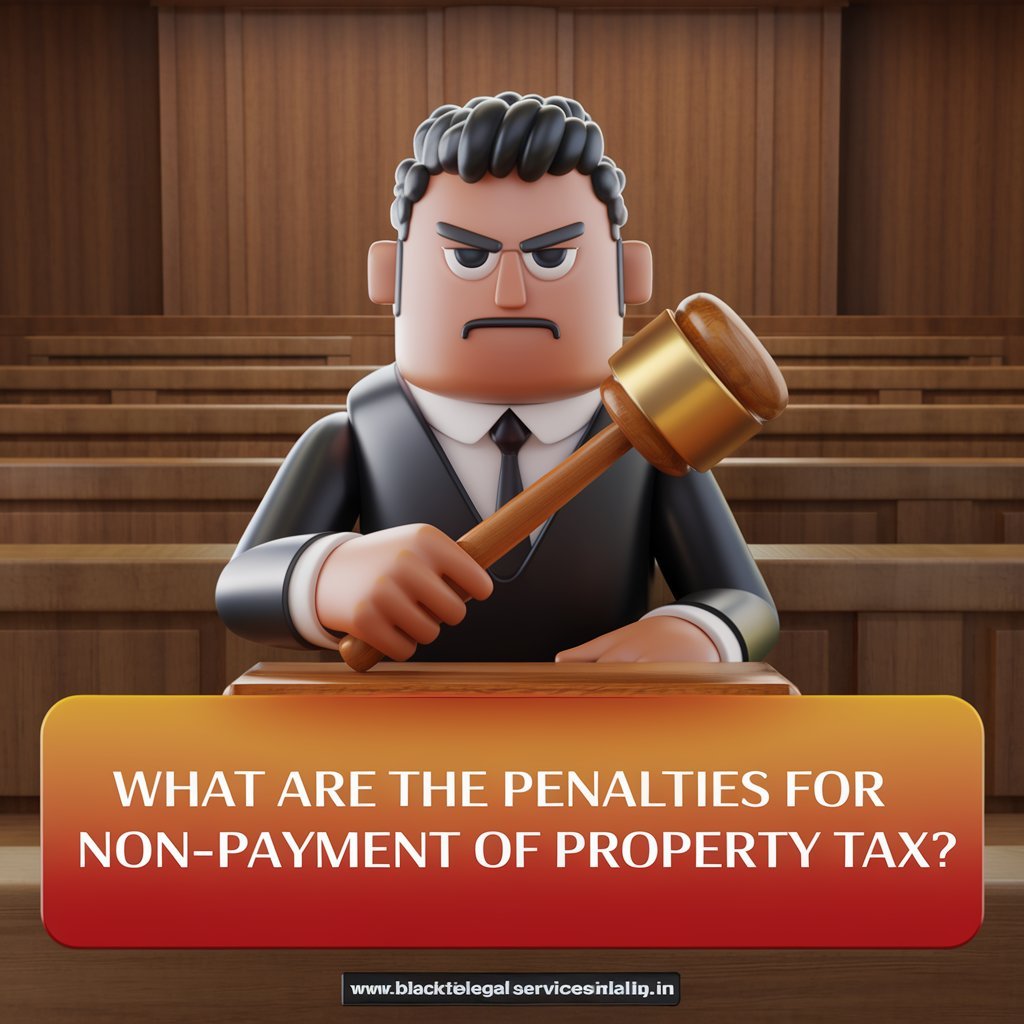
If there is failure in payment or delay to make Assam property tax, there are consequences some of which include penalties or interest and legal implications from the municipal authorities. The penalties usually include:
- Interest on outstanding tax: With regard to taxes, a certain percentage of interest is charged on unpaid taxes for every month they are overdue.
- Legal Notice: Despite the fact that property owners are held liable for not paying Assam property taxes, municipal authorities can issue them legal notices.
- Property seizure: As a result, in extreme cases, the municipal body takes possession of the land or sells it to recover tax dues.
What are the Exemptions and Rebates on Assam Property Tax?
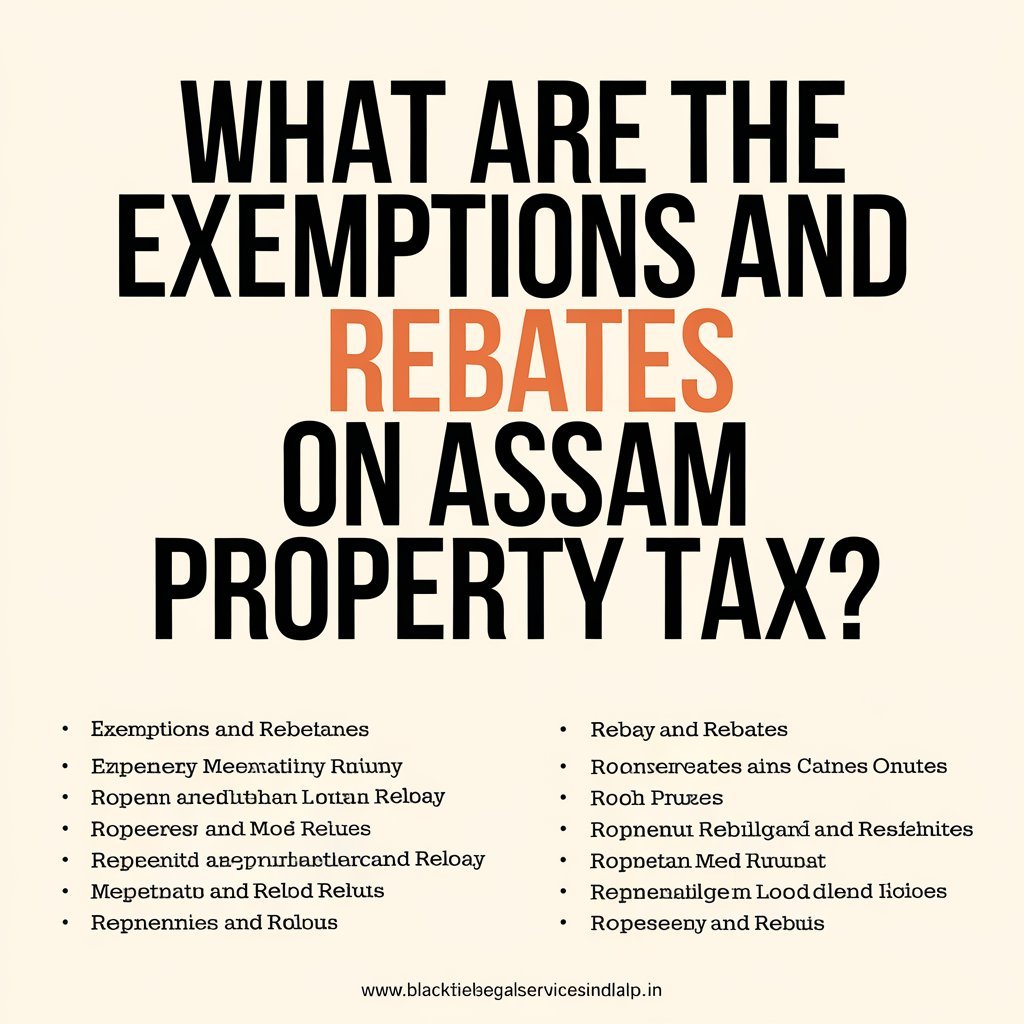
Some of them may be exempted from paying Assam property tax or given a rebate on the tax, depending on certain circumstances. Such exemptions are for needy groups of society or to encourage specific forms of property development. Some common exemptions and rebates include:
Exemptions for Senior Citizens
Self-occupied properties: The Indian senior citizen who owns the property can avail of an exemption or concession in Assam property tax.
Exemptions for Charitable Organizations
It can be fully or partially exempted for property owned by non-profit organizations or charitable trusts that is used for public welfare services.
Rebates for Timely Payment
Some municipal bodies may allow taxpayers to make payment before the due date and they may get a discount of 5-10% for this move.
Rebates for Green Buildings
Rebates can be given to structures that adopt environmentally friendly practices including use of energy efficient materials in construction or having rain water harvesting systems.
What are the Challenges in Assam’s Property Tax System?

Even though Assam property tax represents one of the most important sources of revenues for municipal bodies, the system is not exempted from specific difficulties. Some of the key issues include:
- Lack of Accurate Property Records: This has been made worse by the fact most municipalities have either incomplete or out dated property records which affect the tax assessment.
- Low collection rates: However, legal provisions regarding Assam property taxes still show low collection rates in many areas, affecting potential funding for infrastructure development.
- Resistance to tax payment: Basically, this may involve ignorance; property owners especially from rural areas do not pay taxes, or they pay a lesser amount because they do not understand or do not trust how the money collected as taxes will be used.
- Inadequate infrastructure: In some areas, technical literacy and access to integrated online payment systems are limiting factors for efficient collection of taxes
What are the Tax Rates and Slabs of Assam Property Tax?
Here’s the Tax rates and Slabs of Assam Property Tax in a concise table:
| Type of Property | Location | Assam Property Tax Rate | Description |
|---|---|---|---|
| Residential Properties | Urban Areas | 3% to 5% of Annual Rental Value (ARV) | Tax rate varies based on the size and location of the property. |
| Rural Areas | 2% to 3% of Annual Rental Value (ARV) | Lower rates for properties in rural areas. | |
| Commercial Properties | Urban Areas | 7% to 10% of Annual Rental Value (ARV) | Higher rates apply due to the commercial use of the property. |
| Rural Areas | 5% to 7% of Annual Rental Value (ARV) | Slightly lower rates for properties in rural areas. | |
| Industrial Properties | Urban Areas | 10% to 12% of Annual Rental Value (ARV) | Higher rates for properties used for industrial purposes. |
| Rural Areas | 8% to 10% of Annual Rental Value (ARV) | Slightly lower rates for rural industrial properties. | |
| Vacant Land | Urban Areas | ₹0.5 to ₹1 per square meter of plot area | Tax calculated based on the size of the plot. |
| Rural Areas | ₹0.25 to ₹0.5 per square meter of plot area | Lower rates for vacant land in rural areas. | |
| Institutional Properties | Urban Areas | 4% to 6% of Annual Rental Value (ARV) | Applicable for properties used for schools, hospitals, and other institutions. |
| Rural Areas | 3% to 5% of Annual Rental Value (ARV) | Lower rates for properties in rural areas. | |
| Mixed-Use Properties | Urban Areas | 5% to 8% of Annual Rental Value (ARV) | For properties used for both residential and commercial purposes. |
| Rural Areas | 4% to 6% of Annual Rental Value (ARV) | Slightly lower rates for mixed-use properties in rural areas. |
What are the Reforms in Assam’s Property Tax System?
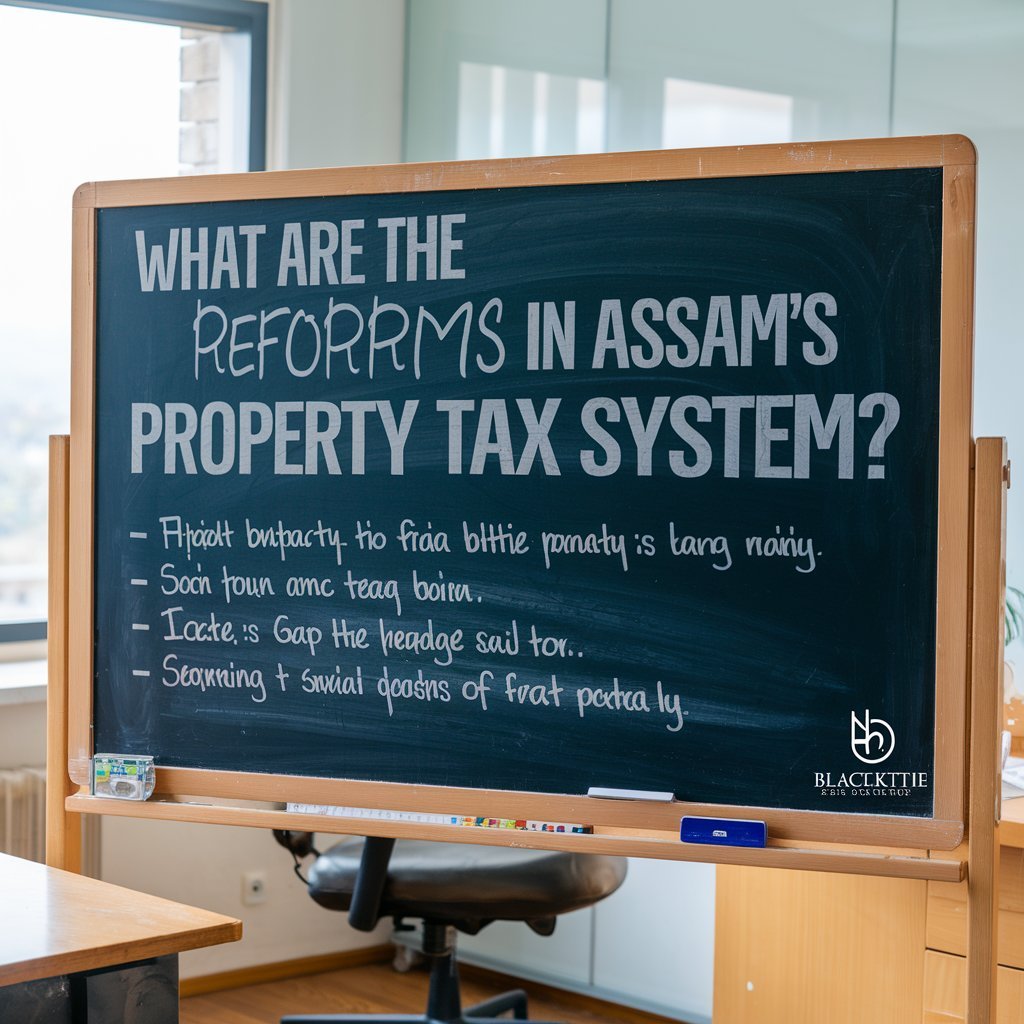
Understanding all these challenges, the state government and local municipalities of our country are working to improve the Assam property tax system. Some of the major reforms are as follows:
- Digitalization of Property Records: Updating and digitizing property records is vital to ensure accurate assessment and collection of all Assam property taxes across Assam, which is currently being done.
- Public Awareness Campaigns: Initiatives have been taken by the Government of Assam to promote a greater awareness of the full value of Assam property tax and its role in local development.
- Introduction of GIS-Based Property Tax System: Geographical Information System (GIS) technology is being investigated to improve property mapping and assessment accuracy, which is also considered very important.
What are the Property Tax Jurisdiction and Responsibilities?
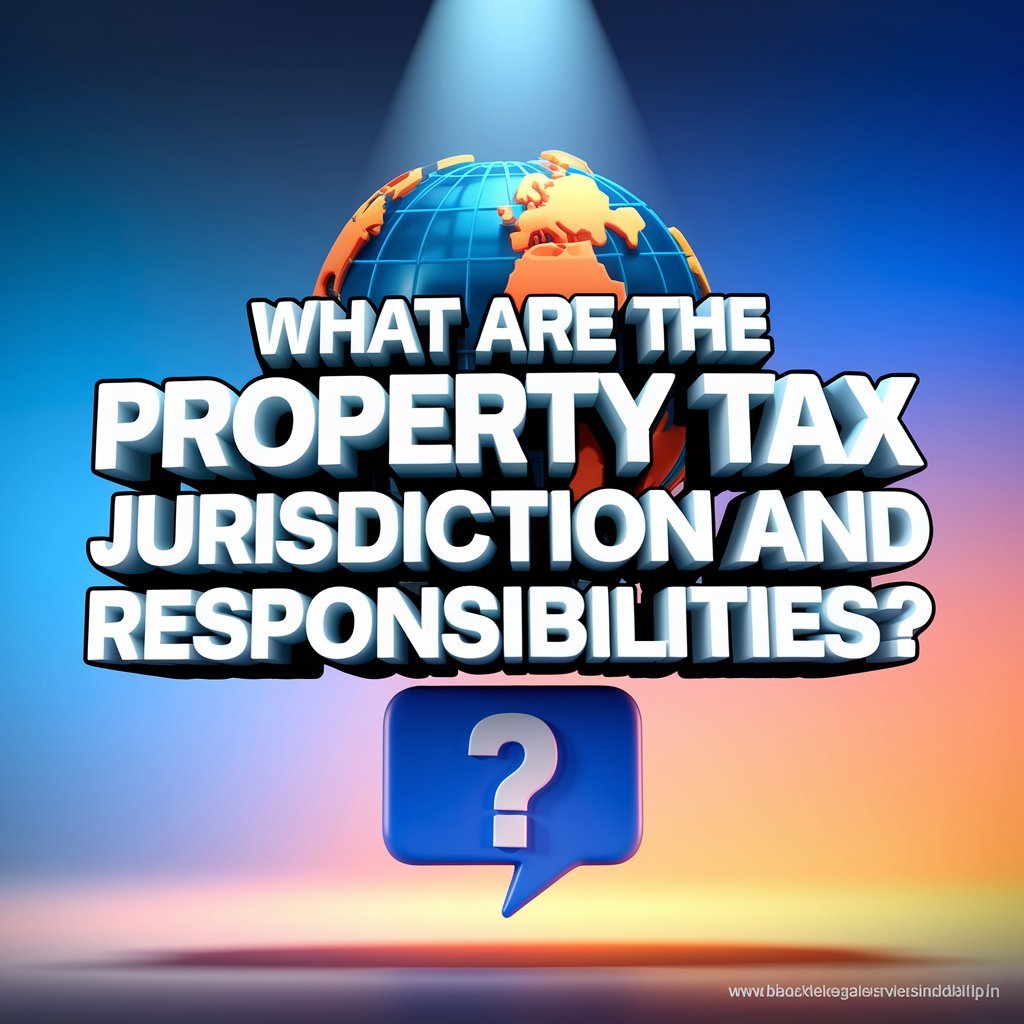
The collection and assessment of Assam property tax are matters of local self-government. Based on the region, the governing bodies responsible for Assam property tax administration are as follows:
- Municipal Corporations (for larger cities like Guwahati).
- Municipal Boards (for smaller cities and towns).
- Town Committees (for urbanized areas in smaller districts).
- Panchayats (for semi-urban and rural regions).
All these bodies have their own rules of tax assessment, collection, and penalties. The actual rate and framework of the tax, its exceptions, and refunds may also be unique to a particular area.
For example, as it relates to the city of Guwahati, the GMC oversees Assam property tax collection while in smaller towns the municipal boards are in charge of tax collection.
What is the Property Tax Assessment Tax Process?
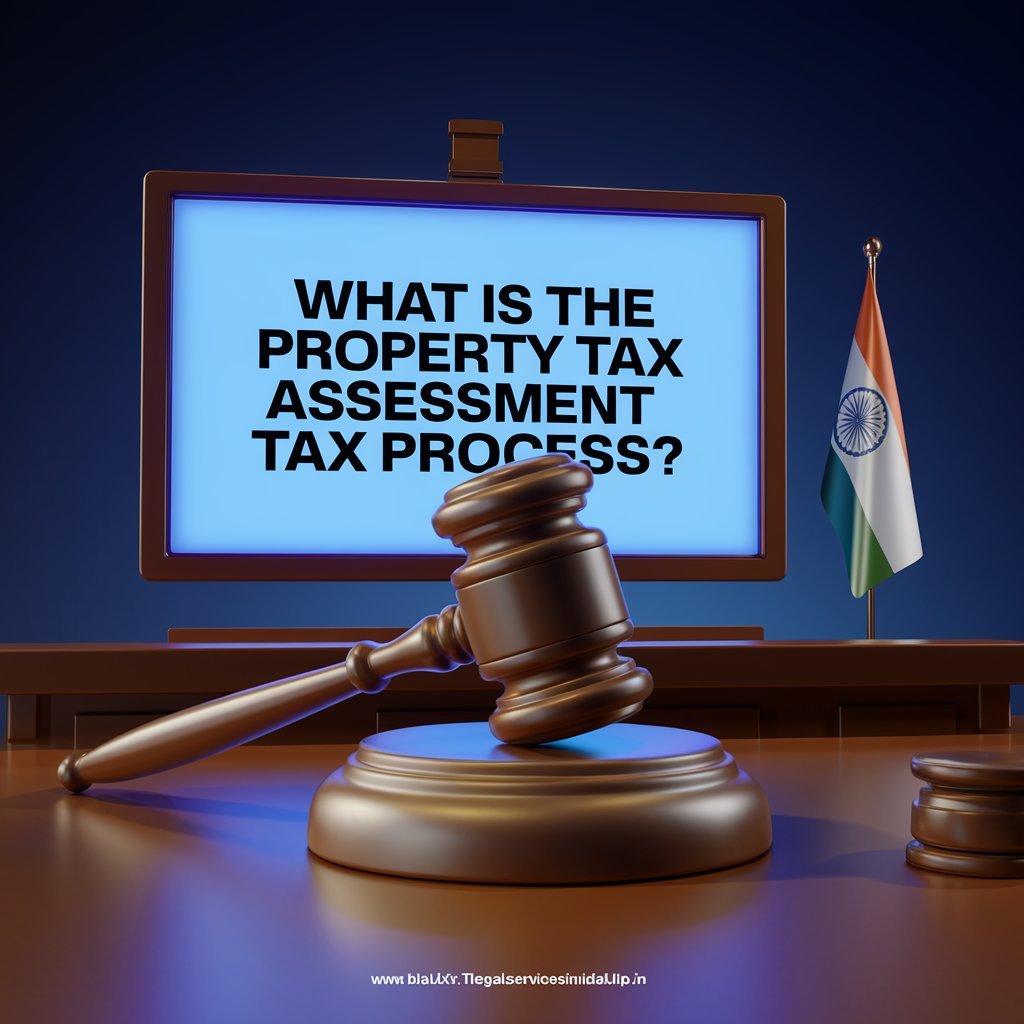
The rationale for Assam property tax assessment in Assam is a systematic approach towards identifying the required amount of tax to be levied.
It begins with the identification of the property which is either done through physical verification, which has now been widely replaced by GIS.
Steps Involved in Assessment:
- Identification of Property: By profession, the municipal authority divides properties into different categories based on their location, type of use, and ownership.
- Property Valuation: The value of the property is determined by the Annual Rental Value (ARV) or the capital value of the property and such values have been determined. This value depends on the location, size, and use of the property, which can be residential, commercial, or industrial.
- Assessment of Tax Liability: After assessing the value of the property, the municipal authority takes the next step in determining the tax levied keeping in view the tax rate applicable to the identified property class.
- Issuance of Tax Demand Notice: A demand notice is issued to the property owner indicating the amount payable for the particular financial year.
- Appeals and Disputes: If a property owner disputes the tax assessment, they have the right to file an appeal with the municipal authority, requesting a reassessment.
What is the GIS-Based Property Taxation?
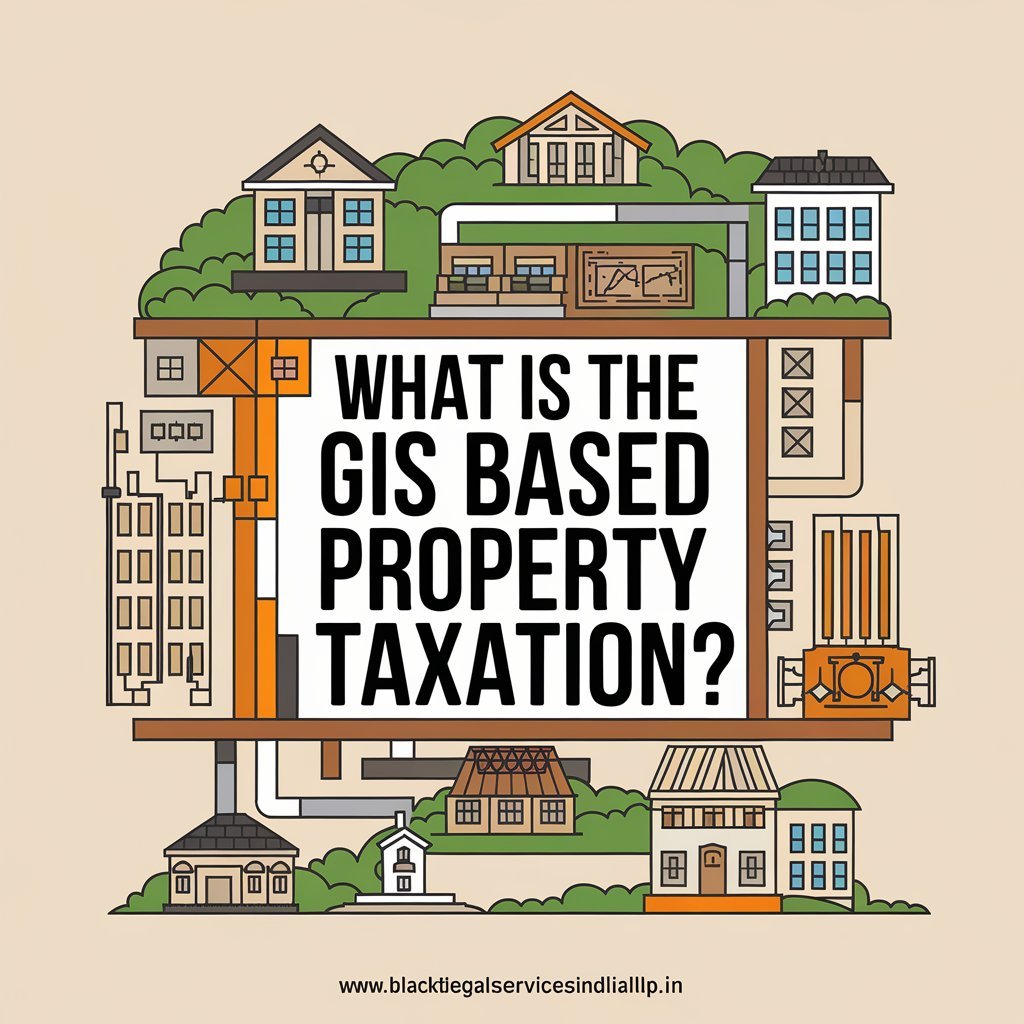
In an effort to solve the problem of distorted property maps and records and increase the effectiveness of Assam property tax collection, Assam has implemented GIS-based property taxation in some urban areas.
The use of GIS technology makes it possible to precisely map properties and infrastructure, ensuring no property is left out and fair taxation.
Benefits of GIS-Based Taxation:
- Accurate property mapping: Accurate boundaries of properties are established using GIS technology, thereby minimizing cases of disagreement between owners and municipal authorities.
- Real-time data access: Local governments can get the latest information about particular pieces of land, or more specifically, properties located in a certain area, and notable changes in their condition, ownership, size, or use, which aids in reassessment.
- Improved tax compliance: Residents will not be able to escape the trap of tax authorities, especially in cases where property owners are aware that the details of their properties are being monitored with such high accuracy.
The future of the GIS-based Assam property tax system will be implemented in all the major cities and towns of Assam and Guwahati will be the first city to adopt this technology.
What are the Issues with Property Tax Collection in Assam?
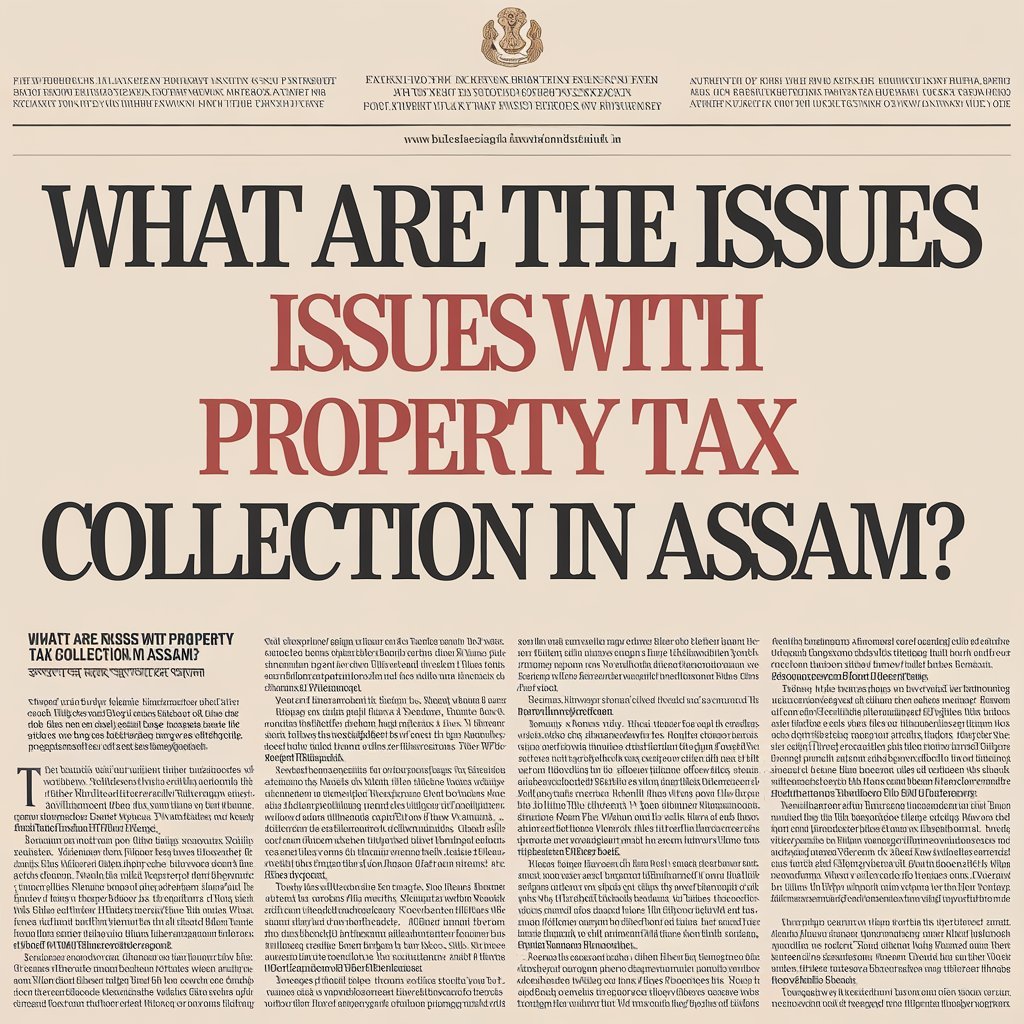
Although the Assam property tax system has undergone reforms, the government has to address several issues in the efficient collection of Assam property tax. Some of the main problems are as follows:
Outdated Property Records
In some districts, property records have not been changed for many years, so there is a huge discrepancy between the records maintained and the current status of the land. This makes it difficult for municipalities to determine the correct taxes to be collected from residents.
Low Public Awareness
There is a lack of awareness among property owners in Assam, especially rural and semi-urban residents, about the cost of Assam property taxes. This lack of understanding leads to low compliance and inadequate funding of municipal services.
Tax Evasion
Due to such registration and list updating, property owners choose not to pay for their entire property or under-report the size or value. This has a huge negative impact in that it reduces much-needed revenue for municipal authorities.
Lack of Incentives for Tax Payment
While some states in Assam offer discounts to citizens who pay their Assam property tax before the due date, Assam’s municipal bodies offer limited ways to encourage early tax payment. Thus, many property owners take time to pay their debts which means penalties and even court cases.
What are the Solutions to Improve Property Tax Collection?
To overcome these challenges, the following measures can be implemented:
Updating Property Records
Local administration authorities should update certain records related to properties to ensure the proper structure of tax assessment. This can be done through periodic surveys, physical examination as well as the use of Geographic Information System (GIS) mapping.
Increasing Public Awareness
There should be wide publicity to property owners about how much tax they have to pay and the importance of paying Assam property tax. It is also very important that important aspects like online payment methods and discounts on timely payment should be explained well.
Stronger Enforcement Measures
Authorities at the municipal level should enhance compliance measures by imposing penalties on non-paying taxpayers, and also ensure that the penalties imposed for non-payment of taxes are properly enforced.
Further, periodic reviews of the properties included in this list may also identify those who have deliberately underreported the size and value of their properties.
Offering Incentives
Municipal bodies should also appoint motivators, as customer groups are always encouraged with incentives, including discounts on early payment and discounts for the elderly.
What is the Situation of Property Tax in Rural Areas?
Although Assam property tax collection primarily targets urban centers, properties located in rural areas of Assam are also taxable, but in an informal manner. In rural areas, property tax is often administered by local panchayats, and the amount collected is used by panchayats for development work, especially the construction of village roads, water supply, and health facilities.
Rural property tax collection faces challenges, including:
- Limited Taxpayer Base: Some residents in rural areas own small pieces of land and are often poor, leading to low tax collection.
- Informal Land Ownership: Some land and properties in rural areas are not formally documented, creating many barriers to the taxation process.
- Lack of Administrative Capacity: Panchayats may not have the capacities and manpower needed to create and implement efficient methods of assessing and collecting Assam property taxes.
What is the Impact of Property Tax on Urban Development in Assam?

It can be concluded that property tax plays a vital role in the development of urban areas across Assam. Therefore, when cities grow and the demand for infrastructure is met, property tax becomes an important source of funding for the development of cities.
Guwahati, Dibrugarh, and Silchar are some of the cities where property tax is a major source of funding for the maintenance and development of more infrastructure and development projects.
Key Areas Funded by Property Tax:
- Road Infrastructure: Construction and maintenance of roads, flyovers, and bridges.
- Sanitation Services: Waste collection, sewage treatment, and public sanitation facilities.
- Public Health: Funding for local clinics, health centers, and vaccination drives.
- Water Supply and Drainage: Ensuring clean drinking water and proper drainage systems.
Property tax forces residents to take responsibility by providing funds for the development and improvement of their localities, resulting in better amenities and quality of life.
What is the Future of Assam Property Tax?
The general outlook of property tax collection in the state of Assam is expected to improve in the coming years as the state government and municipal authorities are striving to implement modern trends. The major trends that will shape the future are as follows:
- Expansion of GIS-based mapping: It is anticipated that the continued increase in the use of GIS-based property mapping will lead to its use in more and more towns and cities, to ensure proper and fair valuation of properties and reduce such disagreements.
- Increased digitalization: As the improvement in online payment platforms is evident, property owners will be in a position to access digital services and hence it will be easier for them to pay taxes.
- Improved enforcement: Measures have been taken to tighten the enforcement mechanism, resulting in increased compliance in terms of legal remedies and property settlement instruments.
- Public participation: Increased public participation in the tax process as well as increased discipline in terms of expenditure of tax collected will help in increasing people’s confidence while paying taxes.
In Conclusion
Property tax plays a vital role in the governance structure of Assam, especially for city development and social benefits. However, it must be modernized, advertised, and implemented at the highest level to reap all these benefits.
Yet the continuous reforms that are taking place in Assam today are set to create a new, more efficient, and effective system of property taxes for both the state and its people.
It is pertinent for people to understand assam property tax obligations so that they can contribute to the progress and development of society.
In the end, we hope that you did not face any problems while reading this blog and at the same time, you will have gained a lot of knowledge about Assam Property Tax which will definitely be useful for all of you sometime in the future.
FAQs
Q1. What documents are required for property tax payment in Assam?
A1. To pay property tax in Assam, you typically need the following documents:
Property ownership documents or title deeds
Previous property tax receipts (if applicable)
Proof of identity (such as Aadhaar card or PAN card)
Unique Property Identification Number (UPIN)
Q2. Can I appeal if I believe my property tax assessment is incorrect?
A2. Yes, if you feel that your property tax assessment is high or unfair, you have to appeal to the concerned municipal body. The power of appeal mostly involves giving a written application along with the property documents. The development proposed for the property by the municipal body will then re-evaluate the property and inform you.
Q3. Are there any tax benefits for constructing energy-efficient buildings in Assam?
A3. Yes, there are some municipal bodies in Assam that provide tax allowances or exemptions to buildings constructed with energy efficient features or features of solar power, rainwater harvesting or other eco-friendly options.
Q4. How often is property tax paid in Assam?
A4. Property tax is like most other taxes, and is usually paid once a year. Some municipal bodies may allow payments to be made on a half-yearly or quarterly basis. The time taken to pay for the house depends on the agreement with the local authority.
Q5. What happens if I fail to pay my property tax on time?
A5. It is important to note that if you fail to pay the property tax on the due date then you may be charged a penalty on the amount or other expenses like interest on the amount. On some occasions they may demand a legal form for which the municipal body can take possession of the property and sell it to recover the dues.
Q6. How is property tax used by the local government in Assam?
A6. The revenue collected from property tax is generally used to build and develop local infrastructure such as roads, parks, provide sanitation and efficient means of garbage disposal, and service other public utilities.
Q7. Is there a difference in tax rates for owner-occupied versus rented properties?
A7. Yes, it is possible for owner-occupied properties to be subject to different tax rates than similar types of properties given out on rent. Different municipalities may have different rates and some different regulation, so you are advised to check with your local government.
Q8. How can I check my property tax balance online?
A8. Most municipal bodies in Assam provide an online platform through which property owners can confirm their outstanding bills through the Unique Property Identification Number (UPIN) or the owner’s name. It will also be possible to view the existing balance in the portal as well as any upcoming bills.
Q9. Are there any exemptions for properties used by religious institutions in Assam?
A9. However, properties being used by religious establishments such as temples, mosques, churches or other related establishments may be fully or partially exempted from property tax as per the decision of the municipal authority of the area.
Q10. Is property tax applicable to agricultural land in Assam?
A10. Usually, agricultural lands in the state of Assam are outside the protected area of property tax. But if the pieces of land are used for other productive purposes such as commercial or residential or any other use apart from agricultural use, then property tax can be levied on them.


Add a Comment